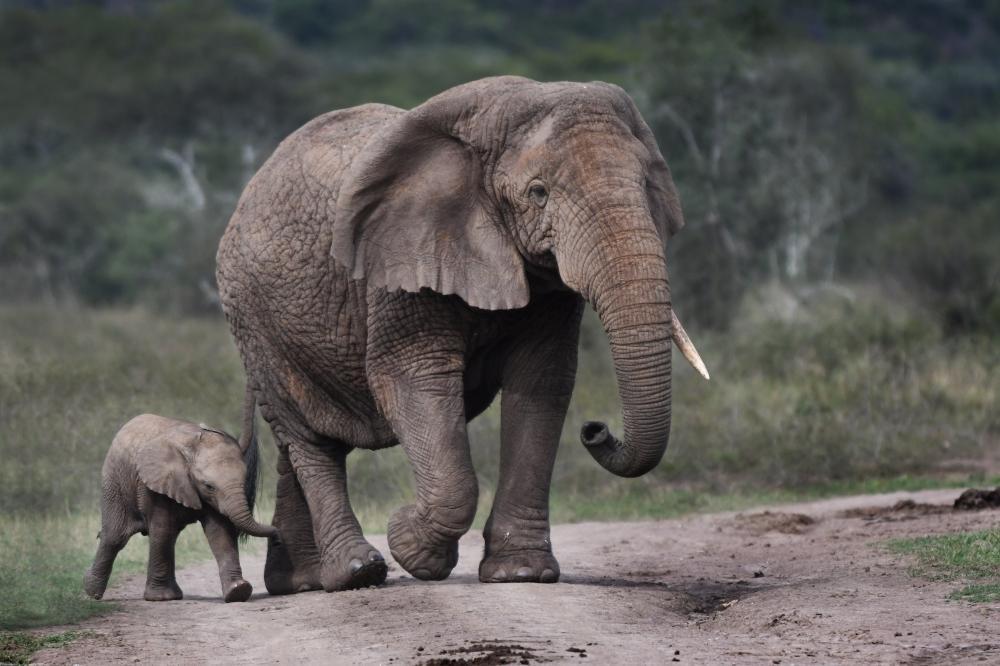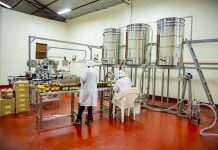Africa-Press – Rwanda. As Rwanda considers reintroducing elephants to Nyungwe National Park, experts say several key factors must be evaluated, from climate adaptation, ecological balance, and tourism potential to the costs and socio-economic benefits.
The move would mark a return of the African forest elephant (Loxodonta cyclotis) to the park, more than two decades after the species was wiped out by poaching.
Tourism prospects drive interest
Following the recent launch of new tourism products in Nyungwe, including a 1,900-metre zipline and a 280-metre rope course, local residents, conservationists, and tourism operators are optimistic that reintroducing elephants could further boost visitor numbers and revenues.
Nyungwe, a UNESCO World Heritage Site, recorded 26,000 visitors in 2024, up from 9,000 in 2021, and projects Rwf 4.8 billion (about $3.4 million) in tourism revenues for 2025. Rwanda Development Board (RDB) attributes much of this growth to Nyungwe’s new attractions.
Eighty-year-old Nathanael Cyiyoni, a Nyamagabe District resident living near the park, recalled through traditional Inanga music how elephants once roamed Nyungwe freely.
His song, composed in 1983, speaks of the elephants’ historical connection to the forest. However, the last elephant was killed in 1999, a victim of rampant poaching in the post-genocide years.
Feasibility study underway
Protais Niyigaba, Nyungwe National Park manager, confirmed that a feasibility study is assessing whether elephants could successfully be reintroduced.
“There are many aspects to consider — ecological, socio-economic, logistical, and cost-benefit analyses,” he said.
The ecological assessment, for example, looks at whether elephants from Akagera National Park, which is home to the Big Five, could adapt to Nyungwe’s hilly, forested terrain.
The Government of Rwanda and African Parks, which co-manage Nyungwe, say any decision will be informed by this study. While African Parks has experience relocating wildlife, experts caution that moving elephants requires careful planning and time for the animals to adapt.
According to park management, elephants once played a vital role in controlling the spread of invasive vine grass in Nyungwe. Without them, the grass has proliferated, threatening native plant species and altering habitats for other wildlife.
Reintroducing elephants could help restore the forest’s ecological balance, benefiting species like chimpanzees, monkeys, birds, and even bees, which rely on certain flora.
“Elephants feed on such grasses. Reducing vine overgrowth benefits the entire ecosystem,” said biodiversity conservationist Ange Imanishimwe. However, he noted the study must also weigh potential human-wildlife conflicts and economic returns from tourism and conservation grants.
Economic potential and risks
“Human-elephant coexistence is critical to assess, considering Nyungwe’s terrain,” Imanishimwe said. “The potential for increased tourism revenues and donor support must also be examined.”
He added that reintroducing elephants could boost Nyungwe’s appeal and increase funds through Rwanda’s tourism revenue-sharing schemes.
If approved, the elephant reintroduction could happen within two years.
Calls for buffalo, gorilla reintroduction
Imanishimwe also suggested exploring the reintroduction of buffaloes, which disappeared from Nyungwe in 1974. African Parks has indicated it is considering this as well.
Furthermore, he proposed a future study on whether some mountain gorillas from Volcanoes National Park could be translocated to Nyungwe, as their numbers continue to grow.
Ambitious revenue targets
Nyungwe National Park aims to generate over $5 million in tourism revenue by 2030, banking on its expanded offerings.
The zipline alone is projected to attract 3,500 tourists in its first year and 9,000 by year five.
Rwanda’s national parks saw significant growth in 2024, with visitor numbers rising 11 per cent and revenues up 8.5 per cent. Nyungwe led the surge, with a 20 per cent increase in visitors, according to RDB’s latest report.
For More News And Analysis About Rwanda Follow Africa-Press






